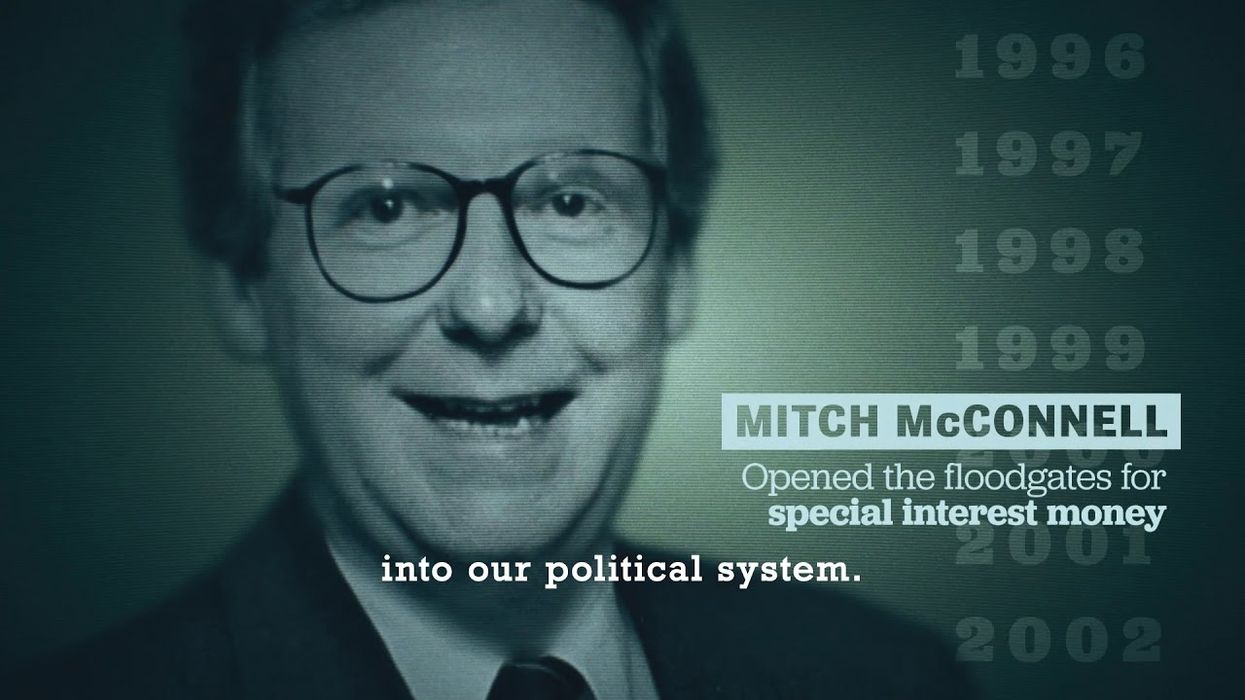A political action committee has launched a digital ad campaign attacking Senate Majority Leader Mitch McConnell for not bringing House-passed government reform legislation to his chamber's floor.
The 30-second ad, titled "Good Ole Mitch," was released Tuesday by End Citizens United at a cost of $50,000.
The ad claims McConnell has a "long history of making sure politicians can be bought" and accuses him of opening "the floodgates for special interest money into our political system."
McConnell, the ad says, is now blocking consideration of the For the People Act. The comprehensive bill passed by the House of Representatives, which is controlled by the Democrats, would strengthen ethics rules, expand voting rights and limit gerrymandering.
Campaign finance reform provisions in the legislation include establishing voluntary public financing for some campaigns, requiring super PACs and other groups to disclose their donors and supporting a constitutional amendment to overturn the Supreme Court's Citizens United decision, which sanctioned unlimited independent spending by corporations and labor unions.
The measure, known as HR 1, passed in March on a party-line vote.
McConnell called the bill a "power grab to give Washington bureaucrats control over what American citizens can say about politics, how we can say it, and how we cast our ballots."
End Citizens United said the ad was the first of its campaign against McConnell during the 2020 election cycle.




















Trump & Hegseth gave Mark Kelly a huge 2028 gift